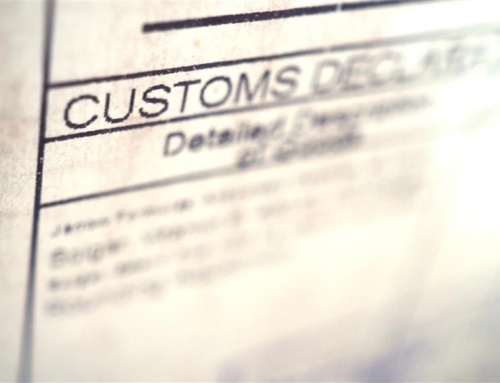In response to the Bureau of Industry and Security’s (BIS) recent proposal to enforce stricter tracking and reporting on the origins of connected vehicle supply chains—aimed at phasing out Chinese components by 2027—automotive, chipmaking, and various business groups have raised some significant concerns. Nearly 100 public comments were submitted before the October 28 deadline, with major requests focusing on clarifying definitions, adjusting timelines, and minimizing potential supply chain disruptions.
OVERVIEW OF PROPOSED RULE
The Department of Commerce provides a notice of proposed rulemaking (NPRM) mitigating risks to national security posed by certain transactions relating to the connected vehicle (CV) supply chain. The rule would prohibit the import or sale of certain CV information and communications technology and services (ICTS) when designed, developed, manufactured, or supplied by entities owned by, controlled by, or subject to the jurisdiction or direction of the People’s Republic of China (PRC) or Russia. These regulations seek to address the risk of foreign adversary-facilitated data exfiltration from, and remote manipulation of, CVs in the United States.
PRIMARY CONCERNS FROM THE AUTOMOTIVE SUPPLY CHAINS
Automotive industry representatives have requested BIS clarify ambiguous terminology. They propose narrowing the term “supports” to “directly enable” to specify hardware or software deemed essential for the functionality of connected and autonomous vehicles. Industry groups argue that vague language could broaden compliance requirements unnecessarily, impacting devices not integral to vehicle connectivity. Additionally, almost all comments from the sector emphasize that legacy software and hardware should be outside of the scope, because updating these systems would be both costly and technically challenging.
The Alliance for Automotive Innovation (AAI), representing the majority of U.S. automakers, highlighted the need for a balanced rule that protects U.S. security interests without causing undue disruption to the automotive industry. It proposed that BIS extend the compliance deadline from 2027 to 2029 to better accommodate the complexities of existing systems. Many in the industry stressed that existing hardware and software systems are deeply intertwined, and compliance under the current timeline could disrupt production and substantially increase costs.
With BIS looking to enforce annual submissions detailing supply chain origins, automakers expressed privacy concerns, with requests that these reports be available only upon BIS request. Mandatory submissions, they argue, could risk industrial espionage. The sector also recommended that BIS allow companies to rely on supplier attestations for component origins rather than conducting exhaustive audits, as attestations would provide a more efficient and cost-effective compliance method.
Some international brands, with operational headquarters outside of China but Chinese ownership or partnerships, face unique challenges under the proposed rule. One such brand noted that strict restrictions could unintentionally impact companies with significant investments in the U.S. despite substantial non-Chinese operational inputs. Similarly, the Japan Auto Parts Industries Association raised concerns about broad restrictions affecting allied-nation entities, proposing the creation of a “negative list” or sanctioned entity list to limit unnecessary regulatory impact on allied countries’ companies.
AUTOMOTIVE INDUSTRY SUPPLY CHAIN IMPACT & FEEDBACK
Some international trade organizations, including those in North America, warned that the proposed rules could disrupt global supply chains critical to the automotive industry in regions like North America. For example, Mexico expressed concerns over potential conflicts with the USMCA (United States-Mexico-Canada Agreement), noting that compliance could increase production costs in assembly-dependent regions.
Read more about USMCA Impact On Auto Industry: Addressing Compliance & Regulatory Hurdles.
Meanwhile, representatives from China’s trade sector argued that the measures might stifle technological progress, suggesting that global cooperation would better serve both security and innovation than restrictive policies.
BIS faces substantial industry pressure to refine the final rule. Various industry leaders have suggested pre-clearance measures, arguing that early approvals of hardware and software in the development stages of vehicles could ease compliance burdens. Heavy truck manufacturers and component suppliers have similarly requested clear guidelines on what qualifies as controlled technology, warning that the current rule draft may disrupt multi-tiered supply chains.
As BIS considers this extensive feedback, the sector emphasizes the importance of a balanced approach. While safeguarding connected vehicles from foreign interference remains a priority, industry leaders stress that the rule must not hinder innovation or incur excessive costs. The automotive and tech sectors await BIS’s response, hoping for a practical regulatory framework that secures U.S. interests without stifling global collaboration and technological advancement.
The Regulatory Impact Analysis is available at http://www.regulations.gov at docket number BIS-2024-0005.
Stay up-to-date on freight news with Green’s Weekly Freight Market Update by following us on LinkedIn. For continuous updates, make sure to check out our website at greenworldwide.com.






